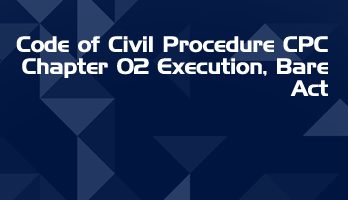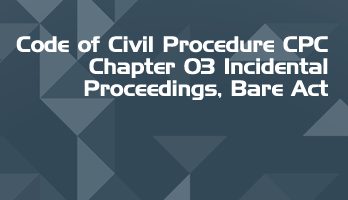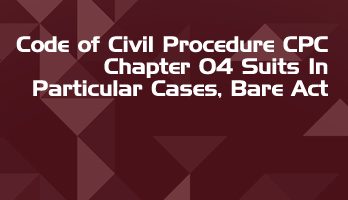A 'Bare act' is the actual legislation passed by the Parliament of India. Generally, an act sets out the high level legal and policy principles applicable to the subject matter of the law.
Most acts are accompanied by 'subsidiary legislation' such as rules, regulations, notifications and orders; which address the actual implementation detail of the act.
Free Full Course Available on LawMint's YouTube Channel
How to Land Your Dream LLB Internship in a Top Law Firm
- Part 1 - Introduction
- Part 2 - Internship Planning
- Part 3 - Internship Research
- Part 4 - Building Your Profile
- Part 5 - The Email
- Part 6 - The Resume
- Part 7 - The Cover Letter
- Part 8 - The Interview
- Part 9 - Self Development
Practical and comprehensive course, with real examples and step-by-step analysis of the complete internship application process. Check out LawMint's YouTube channel now!
Indian Divorce Act, 1869
Chapter X – Settlements
Section 39 – Power to order settlement of wife’s property for benefit of husband and children
Whenever the Court pronounces a decree of dissolution of marriage or judicial separation for adultery of the wife, if it is made to appear to the Court that the wife is entitled to any property, the Court may, if it think fit, order such settlement as it thinks reasonable to be made of such property or any part thereof, for the benefit of the husband, or of the children of the marriage, or of both. Any instrument executed pursuant to any order of the Court at the time of or after the pronouncing of a decree of dissolution of marriage or judicial separation, shall be deemed valid notwithstanding the existence of the disability of coverture it the time of the execution thereof. Settlement of damages. – The Court may direct that the whole or any part of the damages recovered under section 34 shall be settled for the benefit of the children of the marriage, or as a provision for the maintenance of the wife.
Section 40 – Inquiry into existence of ante – nuptial or post – nuptial settlements
The High Court, after a decree absolute for dissolution of marriage, or a decree of nullity of marriage, and the District Court, after its decree for dissolution of marriage or of nullity of marriage has been confirmed, may inquire into the existence of ante – nuptial or post – nuptial settlements made on the parties whose marriage is the subject of the decree, and may make such orders, with reference to the application of the whole or a portion of the property settled, whether for the benefit of the husband of the wife, or of the children (if any) of the marriage, or of both children and parents, as to the Court seems fit: Provided that the Court shall not make any order for the benefit of the parents or either of them at the expense of the children.
Important Central Acts in Regional Languages
Legislative department website also features regional language versions of several important Central Acts.
Free Full Course Available on LawMint's YouTube Channel
How to Land Your Dream LLB Internship in a Top Law Firm
- Part 1 - Introduction
- Part 2 - Internship Planning
- Part 3 - Internship Research
- Part 4 - Building Your Profile
- Part 5 - The Email
- Part 6 - The Resume
- Part 7 - The Cover Letter
- Part 8 - The Interview
- Part 9 - Self Development
Practical and comprehensive course, with real examples and step-by-step analysis of the complete internship application process. Check out LawMint's YouTube channel now!












